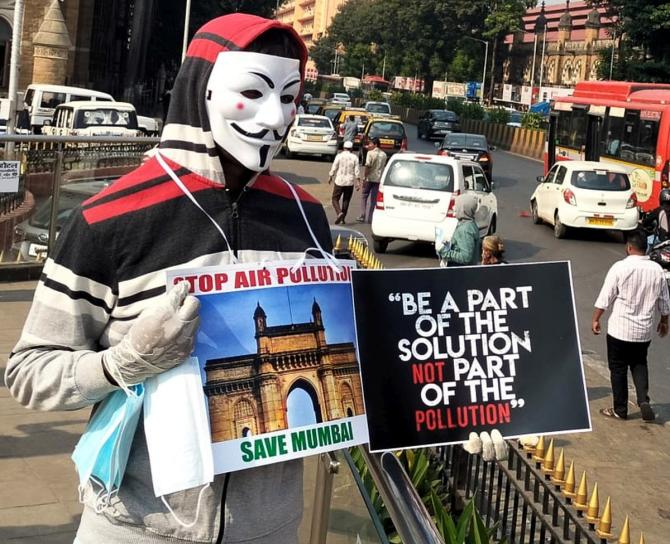General insurance companies are likely to see a surge in demand for health insurance in the coming months due to falling air quality in the country.

The health insurance segment has registered a strong growth after the pandemic due to higher awareness.
In the first half of financial year 2023-24, the segment grew by 24.4 per cent to Rs 54,713.52 crore from Rs 43,981.54 crore in H1FY23, driving growth of the non-life insurance industry.
The surge in price of group health premiums acted as a key contributing factor.
Due to the rise in awareness after the pandemic, the health insurance industry witnessed a huge growth in H1FY24 with industry premiums rising 120 per cent from Rs 24,864.01 crore in the first half of FY19-20.
In the health segment, the premium of the group health segment rose by nearly 27 per cent in H1FY24 to Rs 29,537.57 crore from Rs 23,316.04 crore during the same period of the previous financial year.
Whereas, retail health premium rose by 18.39 per cent to Rs 18,784.82 crore from Rs 15,867.31 crore in the same time period.
According to Siddharth Singhal, business head - health insurance, Policybazaar.com, "The deteriorating air quality index (AQI) will not only affect the lungs and result in respiratory disorders but also cause other long-term problems.
"We are seeing a lot of customers, who are concerned about their health. They are buying health insurance."
Most metro cities in India are battling acute air pollution with the AQI readings being poor, moderate or severe.

While the condition is acute in Delhi-NCR, some other metros like Mumbai are also witnessing increased levels of air pollution.
The depleting air quality is a health hazard, especially for those with respiratory ailments.
In some cases, it even leads to hospitalisation.
Further, increase in awareness on health-related issues due to surge in claims during the winter months will also bolster the demand for health insurance policies.
Usually, during October-December, insurance companies have seen a rise in the number of claims being registered.
There may be an increase in awareness for health insurance, which could be because of the air quality or also vector-borne diseases, which are also on the rise due to the slightly cooler weather.
So, we see more claims, which may translate into a surge in demand, said Bhaskar Nerurkar, head health administration team, Bajaj Allianz General Insurance.
Insurance Regulatory and Development Authority of India (IRDAI) chairman Debasish Panda expressed concerns regarding an increase in risks posed by climate change.
He called for the need for policies that will provide for these difficulties.
Further, he also highlighted the need for advanced climate modelling techniques that will mitigate these risks.
Speaking at an event recently, he said, "The escalating climate crisis has reached a different point, which is necessitating immediate action to address its consequences."
Amid the surge in climate-related risks, insurance companies are also contemplating climate-based products.
So the insurers are looking for climate-based solutions or products where there are very safe products.
So, if somebody is in an area, which is more climatically prone to certain issues, he will buy these policies.
Those kinds of policies are being developed and we will see them in the market very soon, Sudip Indani, head, health & benefits, Howden Insurance Brokers (India), said.
One of the key challenges the insurance industry is facing to design products is the lack of data on people being affected by the poor air quality.
The companies get the data of people impacted by it only after they are hospitalised.
There is a lack of data that will help attribute the surge in demand for health insurance exclusively to AQI.
So, air quality across metro cities in India is more or less bad.
This affects people in many ways.
So, we see some rise in pulmonary diseases.
But the insurance arena does not have substantial data to say it is only due to air quality.
"But we are seeing a rise in respiratory-related diseases", Nerurkar added.
Voicing a similar concern, Singhal said, "There is an uptick in customers, who are applying for health insurance from last year.
"But it cannot be attributed only to AQI-related issues."












 © 2025
© 2025